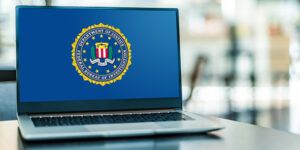Cybersecurity Awareness Month kicks off this week, now in its 18th year and hosted by the Cybersecurity & Infrastructure Security Agency (CISA) and the National Cyber Security Alliance (NCSA). The theme for 2021 is “Do Your Part. #BeCyberSmart.”
Cybersecurity takes awareness and action by all of us, including the Department of Homeland Security, your company’s IT department, your employees as they log into work each day, your family as they shop online at home, and you.
How bad is cybercrime?
Check out these facts from CISA and NCSA:
- In 2019 more than $3.5 billion was lost globally to cybercrime
- The first three months of 2020 saw a 20% increase in cyber fraud as cybercriminals took advantage of the global pandemic
- 7 million data records are compromised daily
There has been an unprecedented shift to more digital usage in the last year, according to Lisa Plaggemier, Interim Executive Director, NCSA, and there’s no going back. She says, “The onset of the ongoing pandemic and the need to stay connected has made our digital life prone to cyber threats now more than ever. As such, it’s critical that we adopt cyber safe practices that can keep our devices and access to our personal data safe and reduce the risk of exposure.”
Personal accountability is paramount
The overall theme of Cybersecurity Awareness Month encourages individuals and organizations to own their role in protecting their part of cyberspace, stressing personal accountability and the importance of taking proactive steps to enhance cybersecurity.
A first step for many people could be as simple as creating better passwords. PCMag shared a recent survey that showed that 45% of respondents use the same password for everything on most platforms. Furthermore, the company says most of those respondents also indicated they have been a victim of cybercrime.
Personal and company cyberliteracy go hand in hand
PrivaPlan’s Director of Cybersecurity Literacy Training Michaela Kahn says that with the proliferation of remote work, mobile devices, and internet of things devices (such as Alexa, Siri, and other linked and listening devices) the problem of the “cross-pollination” of risk factors is everywhere. She explains, “If an employee is not behaving in a cybersecure way in their own personal lives, not only are they more likely to make bad choices with work emails, devices, etc. but they also pose a risk due to potential leaks and security issues on their own personal devices.”
PrivaPlan can provide materials that focus on educating your staff about what cybersecurity literacy is, and why it matters to them personally and professionally, including information about using Multi-factor Authentication (MFA or 2FA) and stronger passwords, as well as reminders to review their organization’s Policies and Procedures for various cybersecurity measures.
If you have further questions about this or other security issues, please reach out to us. We’re here to help. Email info@privaplan.com or call 877-218-7707.





